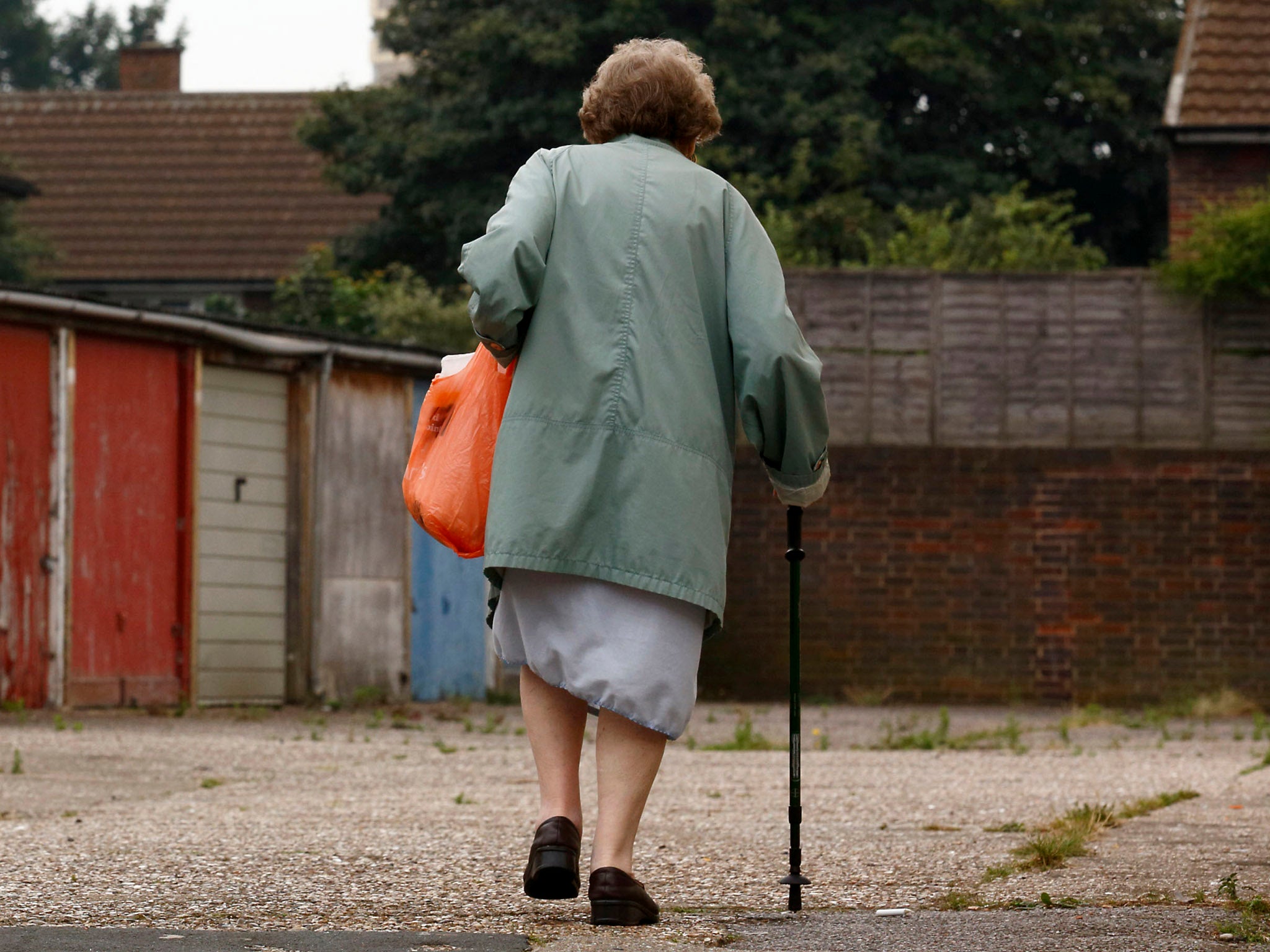Millions of homeowners will still be paying off mortgage after retirement, research warns
Mortgages set to suck up precious retirement cash as past loan decisions come home to roost

Your support helps us to tell the story
From reproductive rights to climate change to Big Tech, The Independent is on the ground when the story is developing. Whether it's investigating the financials of Elon Musk's pro-Trump PAC or producing our latest documentary, 'The A Word', which shines a light on the American women fighting for reproductive rights, we know how important it is to parse out the facts from the messaging.
At such a critical moment in US history, we need reporters on the ground. Your donation allows us to keep sending journalists to speak to both sides of the story.
The Independent is trusted by Americans across the entire political spectrum. And unlike many other quality news outlets, we choose not to lock Americans out of our reporting and analysis with paywalls. We believe quality journalism should be available to everyone, paid for by those who can afford it.
Your support makes all the difference.A fifth of the UK’s homeowners will still be paying off their mortgage after they stop earning, according to startling new figures that reveal the legacy of interest-only loans and delayed first-time buying.
Around 3 million people now expect to still be repaying their home loan after the current state retirement age of 65, research from online broker L&C Mortgages has found, in a break from the historic and often assumed norm.
High house prices, interest-only and part interest-only borrowing, and getting on the housing ladder later than previous generations all play their part in delaying the day homeowners pay off the last of their debts.
The average first-time buyer property is now over 40 per cent more expensive than it was just six years ago according to separate data from The Money Charity.
Today a third of mortgage holders believe they will be older than they had expected by the time they clear their debt – often because they’ve had to prioritise covering the costs of raising and supporting a family.
Creeping costs
Most worrying, almost 60 per cent of those who will still have an outstanding home loan in retirement have no plan for paying off their mortgage once they stop earning. It could leave huge swathes of the UK’s older generations facing a stark choice – try to find a new deal or risk losing their home.
The news comes in the wake of creeping pensioner poverty and despite a rising state retirement age.
A report by the Joseph Rowntree Foundation last year found that almost 2 million pensioners are living in poverty alongside millions of those in work and those with young families.
“Over the last 20 years, the UK has dramatically reduced poverty among people who had traditionally been most at risk – pensioners and certain types of families with children,” the foundation reported. “But that progress is beginning to unravel; poverty rates for both groups have started to rise again.”
Understandably, anxiety among would-be retired mortgage payers over their long term financial security is running increasingly high.
Loan for life
In fact, one in 10 of those over 55 don’t think they’ll ever be mortgage free.
“The fact that people increasingly have to work beyond their standard retirement age to pay off their mortgage is a concern,” said David Hollingworth from L&C.
“Many will see a dip in income post-retirement which could pose affordability issues for older borrowers. Although homeowners will, and should, continue to aspire to pay off their mortgage before retirement, the reality for many could mean having a mortgage for longer.
“It’s clear that homeowners will shift their priorities depending on family needs. For example, so many first time buyers are reliant on the Bank of Mum and Dad. However there still needs to be a clear focus on the repayment of the mortgage, to avoid reaching a point that could force the sale of the family home.”
He added: “It’s not all doom and gloom however and people should assess their options and use the time before retirement to make a plan. The good news is older borrowers have more choice than ever, as the industry continues to innovate and cater for an ageing population.
“Lenders have become increasingly flexible in their approach to older borrowers and the retirement interest-only mortgage market is one that is only likely to see more growth.”
Interest-only ignorance
Almost 40 per cent of all those currently on an interest-only or part interest-only mortgage don’t believe they will be able to pay the remaining sum once their term ends.
When former interest-only mortgage holders have managed to pay off their loan, almost half relied on endowment policies and a third used savings or investments to do it.
These days though, stretched household incomes mean UK consumers are saving less than at any time in the last 50 years. With real wages still more than 5 per cent below the 2008 peak, millions of people have less than £100 in savings.
And yet the average outstanding mortgage among the over-65s alone – those who might expect to have the lowest levels of outstanding borrowing after a working lifetime of repayments – is £86,000. It’s up 13 per cent in the last three years, according to data from the Centre for Economics and Business Research.
But there may still be options out there. “Repayment of an interest-only mortgage that once seemed a million miles away may now be looming large for those that haven’t set capital aside,” adds Hollingworth.
“That may force the need to refinance and extend the mortgage term. Mortgage options for those that can demonstrate ongoing affordability are growing in number so it makes sense to seek advice sooner rather than later.”
Join our commenting forum
Join thought-provoking conversations, follow other Independent readers and see their replies
Comments